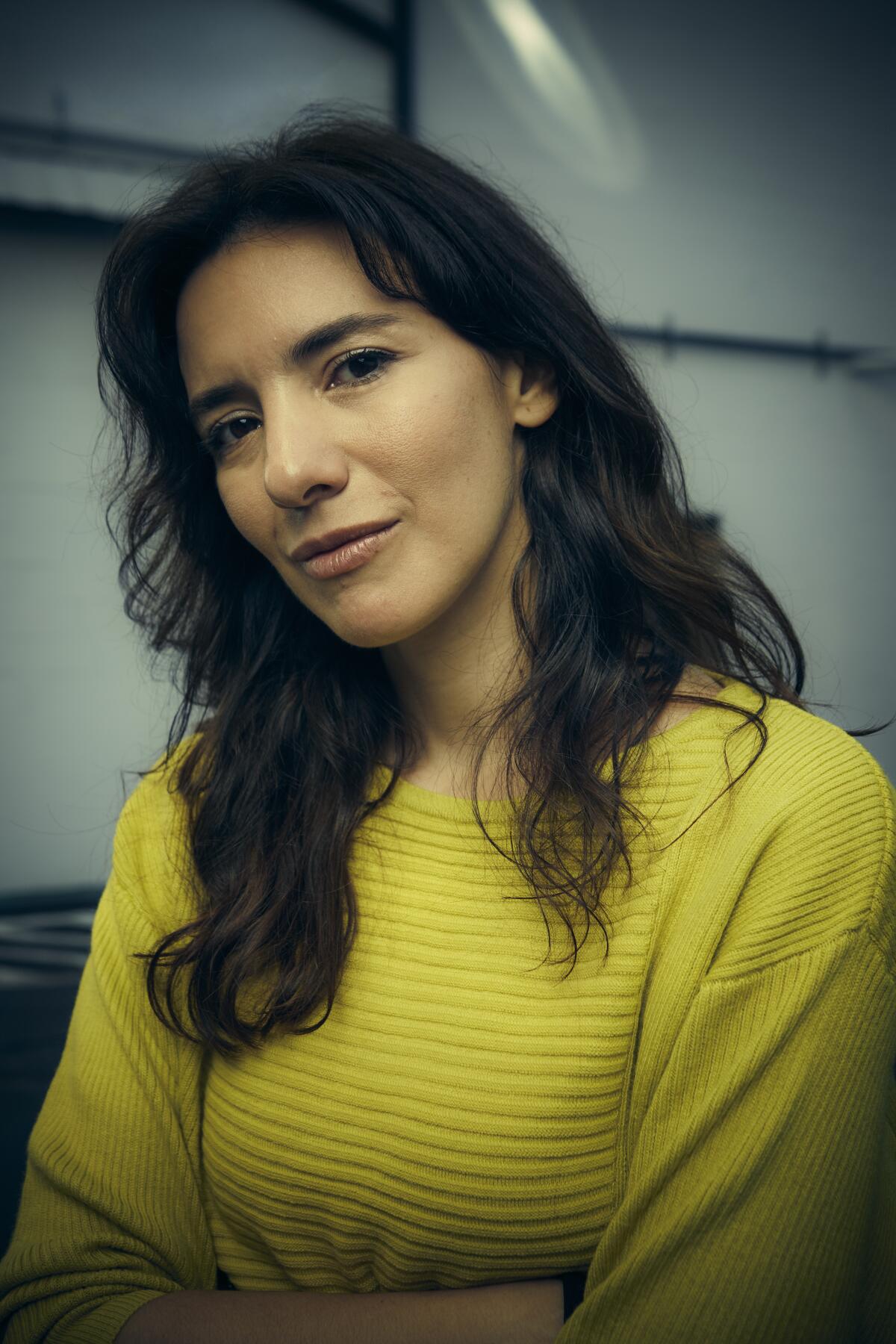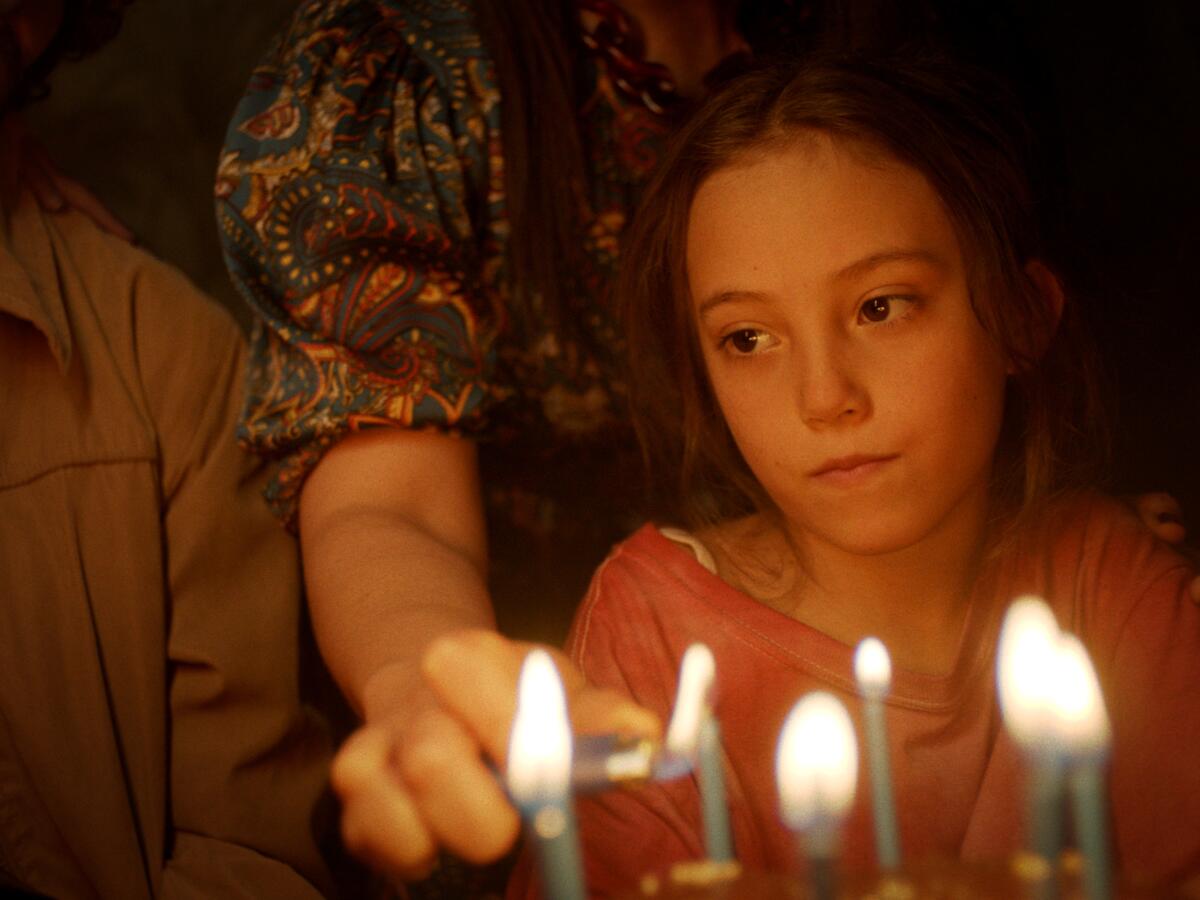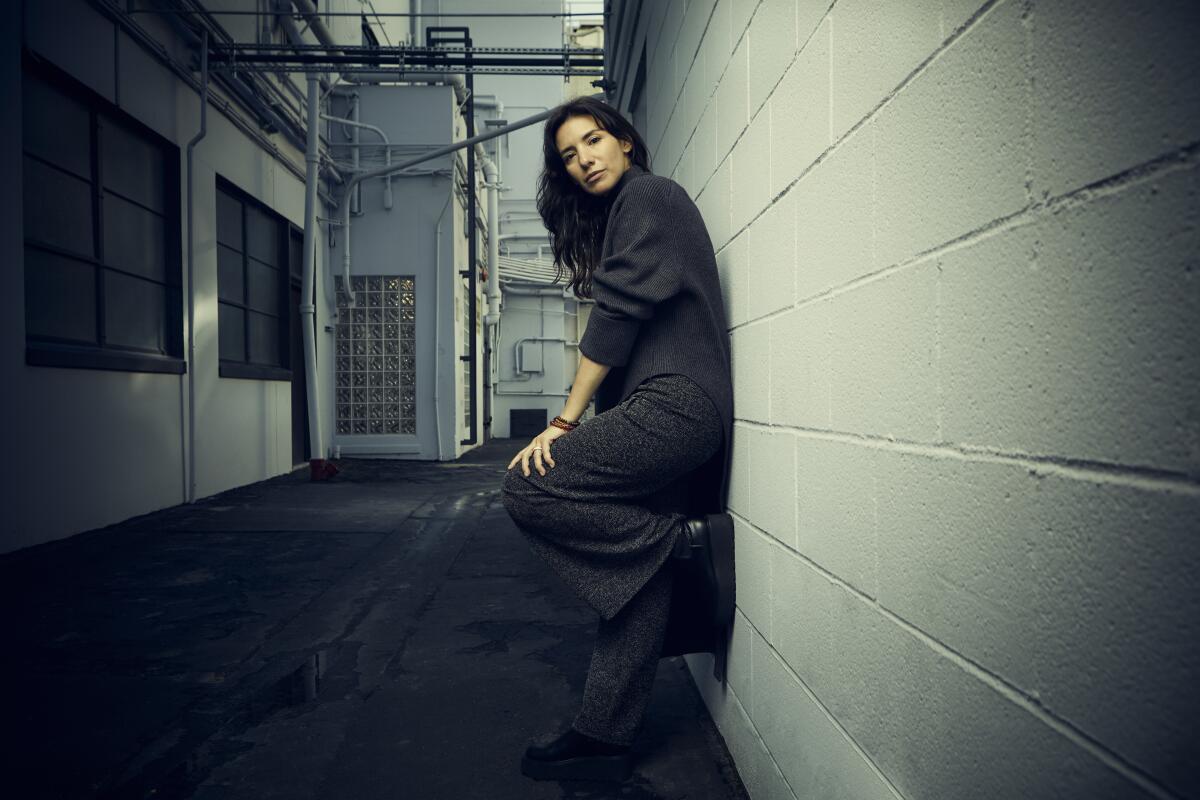In ‘Tótem,’ a family handles cancer with quiet avoidance as a child takes it all in

Mexican director Lila Avilés calls herself a “cinema hippie,” and the term goes some way toward defining her open, endlessly curious approach to human behavior. Her new film, “Tótem,” which Mexico has selected as its 2024 Oscars submission, is a meditative, earthy account of a chaotic family gathering.
It unspools over the course of a single day, within a single house, as 7-year-old Sol (Naíma Sentíes) awaits the birthday party of her father, Tona (Mateo García Elizondo), who is dying of cancer.
For much of the film, family members busy themselves with frantic preparation, employing various avoidance tactics — pruning bonsai trees, inviting spiritual healers and speaking in code — to skirt the truth of Tona’s condition. For Sol, however, the reality is all too clear.
Avilés spoke to The Envelope during a recent visit to Los Angeles.
This is a film about a home, and most of it takes place within the same house. How did you find the right location?
For me, the house was another character, and it was super important. In Mexico, they film a lot, and sometimes location managers want to use the same houses and just change out the art and furniture. I asked my team: “Please, I want a special house.”
What’s crazy is that we had a lot of houses to visit, but after visiting the first house, I told my team, “This is the house.” I can be a super control freak in other aspects, but with this, it was a matter of feeling. I loved it. I loved the owners of the house and the energy. I knew the film needed a labyrinthine space but one that wasn’t a palace.

What’s the biggest challenge of working closely with young actors?
Well, I love to play, so I can handle children really well. I wanted to have that same energy with the girls so that even the sensitive situations could be super joyful.
When I’m directing, I’m so happy to not understand every single scene and to try to catch a better way to travel that [narrative] path. Kids are like this too.
Obviously, making a film is hard work, but when you have kids around, it’s less stressful. They remind you to remove the solemnity and bring in the joy.
With Naíma Sentíes in particular, did you know right away that she was the right child for Sol?
It was a process. Me and the casting director Gabriela Cartol saw a lot of girls. With Naíma, it was not like Shirley Temple, where there’s a unique first take and you know immediately that she’s a gem. But I really, really loved talking with her, before we even started doing camera exercises.
During the casting, she showed me her vulnerability. It was her first time going through this process. And I loved her maturity of thinking, her resilience, her sense of calm. With Sol, I wanted to build a character who was very awake, very aware.
We often have this prejudice with children — we assume that because they’re young, they don’t know what’s happening. We give them an iPad and say, “voilà, go away.” I have a feeling that children are super intelligent and super intuitive and know how to find the answers. Childhood is destiny. We need to pay attention to those first seven years. It’s when your consciousness starts spreading and moving into union with other people.

The film is full of long takes. Do those pose a particular challenge?
It’s super hard. I’m a bit of a control freak, but when I sense that the scene feels natural, I’m able to let go.
I don’t do a million takes. But before filming each scene, I’m considering the best way to shoot it and how to work with this mix of formal actors and nonprofessional actors to make them comfortable. It’s a matter of communication and trust.
Shooting the party scene was stressful. I had headphones on and was hearing everything — it was chaos everywhere. But I have that duality, you know, like a warrior. I’m a control freak on one side, and super free on the other. It’s a matter of being present. That’s what I love about being a filmmaker. Somehow, you really enter into time. You turn into a magician.
How does it feel to have Mexico select this film as its Oscar candidate?
This film has been my totem, and I’ve traveled with it to over 60 festivals. The beauty of this process is to catch the feeling of the spectators. That’s why I’m a filmmaker, to have that communication with the audience.
I’m also a cinephile. To be selected for Oscar consideration, in a year full of amazing films … it’s incredible to be part of that group. In every single country, I want to speak with filmmakers. Mexico doesn’t always win at [soccer], but it has such a great cinematic history. Argentina might have [Lionel] Messi, but Mexico has Guillermo del Toro. So, being a part of that, and also being a woman — it’s important, and it’s amazing.
More to Read
From the Oscars to the Emmys.
Get the Envelope newsletter for exclusive awards season coverage, behind-the-scenes stories from the Envelope podcast and columnist Glenn Whipp’s must-read analysis.
You may occasionally receive promotional content from the Los Angeles Times.






